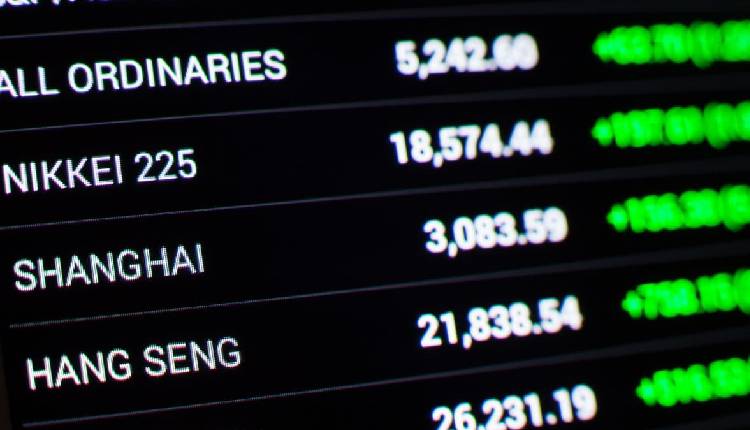Asian markets showed hesitation on Monday as fears over US inflation data threatened to upset the trajectory towards lower interest rates, according to Reuters.
Japan’s potential currency intervention has momentarily checked the yen’s fall. In China, the central bank’s actions have spurred a yuan rally, leading to a wider dip in the dollar.
Investors are eyeing the US core PCE price index, due Friday, which is projected to show a 0.3 per cent rise for February, maintaining an annual rate of 2.8 per cent.
A higher figure could undermine expectations for a Federal Reserve rate cut in June. With markets closed for Easter, any reaction to the PCE data will be delayed until the next week.
Fed Chair Jerome Powell’s recent dovish stance has increased the likelihood of a June rate reduction to 74 per cent, up from 55 per cent. Powell is set to speak at a policy conference this Friday, coinciding with appearances by Fed governors Lisa Cook and Christopher Waller.
In Europe, inflation scrutiny continues with upcoming consumer price data from France, Italy, Belgium, and Spain, all preceding the EU CPI report on April 3.
Sweden’s central bank is anticipated to maintain a 4.0 per cent rate, though the SNB’s unexpected easing has led to speculation of a dovish outlook.
Equity markets have generally benefited from the global trend towards lower borrowing costs, with the S&P 500 climbing almost 10 per cent year-to-date. However, a slight retreat was seen on Monday, with both S&P 500 and Nasdaq futures dipping 0.1 per cent. The EUROSTOXX 50 remained static, while the FTSE futures experienced a minor drop.
The MSCI’s broadest index of Asia-Pacific shares outside Japan held steady, just shy of eight-month highs, and Chinese blue chips inched up. Japan’s Nikkei retracted slightly after a significant rally last week.
Central banks worldwide are leaning towards more accommodating policies, with the SNB cutting rates and the BoE and ECB signaling potential easings starting in June. The dollar has emerged stronger, buoyed by a dovish global monetary environment and the PBOC’s move to let the renminbi weaken.
Despite a shift in the Bank of Japan’s ultra-loose policies, the dollar remains resilient, with the yen trading lower and the euro struggling to recover.
Gold prices are regaining some lost ground, while oil prices receive support from geopolitical tensions and a decrease in US drilling activity. Brent and US crude oil prices have edged up, reflecting the market’s cautious optimism amidst a complex economic landscape.


